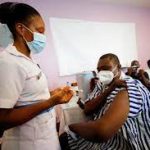Africasti’s Chief Editor, Diran Onifade would be on the stage with stakeholders in, and with passion for biosciences to lead discussions on evolution of genetic improvement tools in Agriculture, with the aim of ascertaining whether trends in communication is matching up, as the 5th edition of the Africa Biennial Biosciences Communication (ABBC 2023) Symposium begins on Tuesday in Nairobi, Kenya.
This year, the symposium is offering opportunities for participants to actively exchange experiences and best practices options for improving bioscience communications, and how this could contribute to the ambitious plans, goals and priorities of Africa’s Agenda 2063.
Agenda 2063, set by the African Union is the blueprint for transforming Africa into the global powerhouse of the future.
The four-day symposium holding from August 22 to 25th will feature keynote address, thematic presentations, panel discussions, case studies, breakout sessions, targeted side events, plenaries and exhibitions that will primarily focus on evolutionary trends in global agricultural genetic improvement tools and their contribution towards planetary health, trends in regulatory and policy perspectives shaping adoption of new breeding tools and dynamism in global communication trends and their impact on perceptions about new breeding tools in the context of a systems thinking approach towards sustainable development.
Onifade will be leading the conversation on how Social Media houses combat misinformation weaved around his presentation on the subject, after which he would partake in a panel discussion that aims to put perspectives on best communication practices.
According to the organisers, the symposium also aims to aggregate efforts by various actors towards improvement of Africa’s food and feed systems amid climate change, gender and social inclusion challenges.
Most importantly, the event hopes to provide opportunity for participants to share lessons from the last two decades of communicating about modern biotechnology and implications on progress with new breeding tools. It also would give them the latitude to interrogate narratives framing regulatory and policy perspectives on new breeding tools and their impact on Africa’s goal for a transformed agriculture in line with Agenda 2063, as well as determine best-bet communication practices on new breeding tools that contribute to advancing sustainable food systems and planetary health goals.





